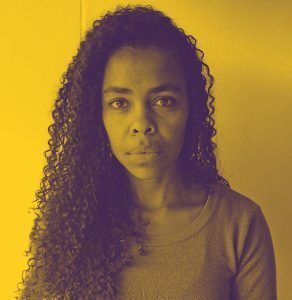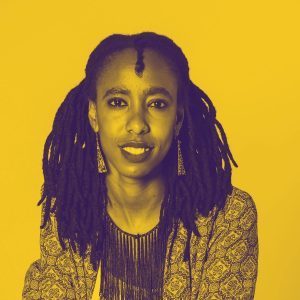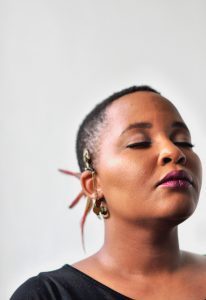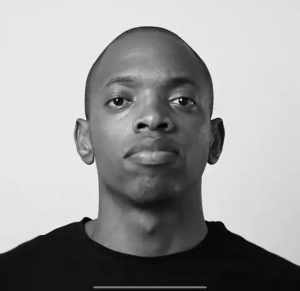99 Questions Archive (2021–2022)
REIMAGINING THE MUSEUM
99 Questions at the Humboldt Forum combines different formats of dialogues, podcasts, workshop gatherings and residencies and raises questions on past and future museum practices, whilst reflecting on the historical and contemporary impact of colonialism.
With the opening of the exhibitions of the Staatliche Museen zu Berlin, numerous objects will be on display at the Humboldt Forum that arrived in Europe during the colonial period. These objects through their presence in museums represent the erasure of knowledge, languages and practices, and symbolise a context of injustice and violence, both in the past and present. The various 99 Question formats aim to question the values and foundations of museums, specifically ethnological museums, that bear strong colonial entanglements.
Together with various practitioners and thinkers, 99 Questions seeks to raise questions on shifting engagements on understandings of collections, representations, languages and epistemologies, forms of knowledges and community participation. The combined formats aim to highlight ecologies of knowledges and establish a space to collectively process learning and transformation.
Participants in 2021 and 2022
We would very much like to thank the various thinkers and practitioners who contributed to the 99 Questions programmes, without who it would not exist:
Amber Aranui, Wiebke Ahrndt, Morehshin Allahyari, Jason Allen-Paisant, Eliza Apperly, Ash Baccus-Clark, Kathleen Bomani, Tegan Bristow, Jim Chuchu, Evelien Campfens, Malcom Ferdinand, Osaisonor Godfrey Ekhator-Obogie, Macarena Gómez-Barris, Ana María Gómez López, Bernhard Heeb, Flavia Heins, Emmanuel Kasarhérou, Naazima Kamardeen, Wandile Kasibe Feven Keleta, Lars-Christian Koch, Miranda Lowe, Sima Luipert, Anne Luther, Sharon Macdonald, Janet Marstine Nandiuasora Mazeingo, Hadji Malick Ndiaye, Molemo Moiloa, Minakshi Menon, Mpho Matsipa, Njoki Ngumi, Temi Odumosu, Prasanna Oommen, Alexis Th. von Poser, Ciraj Rassool, Viola Rosenau, Zoé Samudzi, Lethabo Sekhu, Boaventura de Sousa Santos, Chao Tayiana Maina, Winani Thebele, Sabine Tschorn
99 QUESTIONS – DIALOGUES
99 Questions Dialogues is a monthly discursive and dialogical format, to which various panellists and discussants are invited. The events take place as a livestream and are then available as a recording on YouTube and our website.
In 2021, in the midst of the pandemic, the dialogue series initiated its conversations digitally. Thematically Status Quo commenced with a focus and devotion to forming a critical understanding of colonial histories and their current implications. The subsequent dialogue Following the Trail raised questions on the museums’ imperative to find collaborative approaches in provenance research and curatorial practices. Up next, the event We are talking about people here addressed the urgency to establish a way to engage with sensitive heritages, such as ancestral remains in collections, and the importance of identifying as well as establishing new relationships with communities beyond representation. The need to find a new restitution vocabulary and to rethink the idea of ownership was highlighted in the Justice vs. Law dialogue by introducing concepts of restorative justice and the Third World Approach to International Law. The final session of 2021, Decoding the Museum, focused on the ongoing and mostly unexamined process of digitising collections, addressing the role of biased algorithms and reproductions of violent forms of representation.
In 2022 99 Questions continued with Gardens of Empire and (De)Colonial Ecology, focusing on colonial legacies of natural sciences and their pervasive manifestations in museums, archives, and collections. The latter of the two events was framed by poems from Thinking with Trees by Jason Allen-Paisant. The subsequent discussion New Relationships addressed the practices and principles of relational ethics, specifically how cultural institutions are in need for ethics that can lead to shaping new relationships in dealing with the colonial afterlife of museums. In his lecture Decolonizing History Boaventura de Sousa Santos spoke about history not being an isolated narrative about the past, but an interweaving of different interrelated incidents.
Building on the April event on relational ethics, students from Cape Town University and the Universidade Federal do Estado do Rio de Janeiro were able to further explore ethical relationships in several workshops throughout May 2022, and presented their findings in the June event titled New Museum, New Ethics.
99 Questions – Gathering
99 QUESTIONS – PODCAST
The 99 Questions Podcast offers the opportunity to delve deeper into the topics of the series with changing moderators and different guests. In different episodes, the guests address the connections between museums and colonialism, share personal experiences and discuss what curatorial practice and a world of tomorrow might look like.
The first five episodes were thematically based on the first five 99 Questions Dialogues and moderated by Feven Keleta. The mini-series Access for who? was created as part of the 99 Questions Residency by Chao Taiyana Maina and Molemo Moiloa from Open Restitution Africa. It attempts to unpack the necessary care and ethics of digitising African heritage, particularly in the age of restitution.
The six-episode series Decolonial Ecologies was curated and hosted by researcher, artist and curator Aouefa Amoussouvi. It discusses decolonial methodologies, practices and instances of sustainable and inclusive environmentalism in both the Global South and the Global North. The series also addresses the power dynamics intertwined within the construction of Ecology as an academic scientific field.
99 QUESTIONS – RESIDENCIES AND WORKSHOPS
99 Questions Residencies and Workshops are a space, alongside the other formats, for establishing interdisciplinary and sustainable cooperation. They intend to provision a capacity to, on the one hand, call attention to various topics from different perspectives and on the other institute a space for possible future engagements. Crucially the aim of the residencies is to establish a platform for interpersonal exchange, for discovering overlaps and consistencies between seemingly disparate (personal) histories and collective memories, as well as to open up a space for mutual learning on which forms and practices of common dialogue and ideas can emerge.
The digital and in-situ residencies are open to a wide range of individuals from various fields of disciplines. Fellowships are granted, but not limited to, artistic and (non)academic research, community engagement, crafts and further backgrounds or practices.
Open Restitution Africa
What the Algorithm doesn’t see / Access for Who?
Digital Residency: August 2021 – January 2022
“As the momentum behind restitution grows, many positions and controversies emerge. Too often, these are based on opinion, assumption and guesses. In cases where positions and controversies are based on actual knowledge of a certain issue, this knowledge is often specific, localized and anecdotal.” from a presentation by Chao Tayiana Maina and Molemo Moiloa
In their residency the two founders of Open Restitution Africa, Molemo Moiloa and Chao Tayiana Maina look to begin a conversation on digitisation of African heritage collections. Through research and discussions, they attempt to unpack the necessary care and ethics required when seeking to digitise African heritage, particularly in the age of restitution. While digitisation is often considered a strategy for future oriented safe keeping, distribution and greater engagement, they ask – for who? And for what purposes? And are we making decisions about digitisation that ensure these objectives are met in ethical, equitable ways?
Taking into consideration the positions of practitioners across the spectrum of heritage, digital, intellectual property and museum work, they explore, and think together with their collaborators about the difficult questions that digitisation of African heritage brings to the fore. Furthermore, they will also look at the many propositions – some simple, and some more extended – to do this work better for the future.
The Open Restitution Project is an Africa-led project seeking to open up access to information on restitution of African material culture and human ancestors, to empower all stakeholders involved to make knowledge-based decisions. The Open Restitution Project gathers data on current restitution processes across the African continent, and develops accessible formats for information engagement on restitution issues. As it grows, the project looks to serve as a portal of case studies and best practice examples, to encourage a data-informed, in-depth and challenging debate on the complexities, responsibilities and ethical imperatives of restitution.
The Open Restitution Africa project started in 2020, through a partnership between Nairobi-based African Digital Heritage and Joburg-based data impact agency, Andani Africa to develop the Open Restitution Africa project. As an initiative driven by two women-led entities based on the African Continent, the project centres African knowledge and capacities on restitution concerns.

Molemo Moiloa
Molemo Moiloa has extensive experience in the non-profit environment within the cultural field in South Africa. She works across the African continent and the global south on arts for social change programmes. Molemo is a co-founder of the Open Restitution Africa project, is head of research at Andani.Africa, a lecturer in History of Art at Wits University and one half of the artist collaborative MADEYOULOOK.

Chao Tayiana Maina
Chao Tayiana Maina is an experienced digital heritage specialist and digital humanities scholar. She is the founder of African Digital Heritage, a non-profit organization that seeks to encourage a more critical and holistic approach to the design and implementation of digital solutions within African cultural heritage. She is also a co-founder of the Museum of British Colonialism where she leads digital engagement.
The Nest Collective
Just Make Another One…
Digital Residency: November 2021 – April 2022
“As one distinctly dull task of decolonization labour is explaining imperial and colonial injustice to audiences with varying degrees of ignorance about the history of Western ‘engagements’ and ‘interactions’ with the African continent, the development of educational tools such as a game are not just a frivolous pairing of gaming theory with contemporary politics, but a useful tool in building alliances and dismantling structural ignorance.” from the concept of Jim Chuchu and Njoki Ngumi.
Games – whether digital or analogue – can be sites for introspection and action. Thus gaming can be understood as a tool for mutual learning and a space for the creation of joint experiments and empathy. On a narrative level, games may challenge and complicate poisonous intellectual, political and social positions around object return and repatriation to the places from which extractive acquisition occurred. Yet in using visual references from the past and present, they are also able to create alternative realities and utopias, that can act as a balm for societies that have been denied the privilege and audacity of shaping the world around them in their own image.
So can we build a better world by creating and playing games? The residency will engage with questions about the potential to (un)learn via digital or analogue games. Here, questions about narration and mediation come into play, as well as about design principles and visualisation.
While Germany just happens to be considered the home of modern board-gaming, The Nest Collective‘s Njoki Ngumi and Jim Chuchu will devote their six-month digital residency to researching on games and gamification as a way to engender different forms of engagement around particular sets of given information, allowing publics to engage with different materials in their own new ways, teaching themselves, and arriving at a variety of conclusions.
The Nest Collective is a multidisciplinary arts outfit that uses an applied-research holistic methodology to create cultural bodies of work with film, fashion, literature and other media. These interventions are designed to engage audiences using multiple points of entry and reflection, thus enabling nuanced consideration, discussion and debate of the issues raised without sacrificing the work’s aesthetic and artistic value. The Nest’s work usually finds multiple platforms for engagement, including academia and research, the arts, varied cultural meeting points, civil society discussion and mainstream media platforms. Among many other projects, The Nest Collective is participating in the 2022 Documenta.

Dr. Njoki Ngumi
Dr. Njoki Ngumi is a writer and feminist thinker who has held positions in private and public health care sectors in Kenya. She is a founding member of the Nest and the coordinator of learning and development for HEVA – Africa’s first creative economy catalyst fund, based in Kenya that invests in the creative economy sector in the East African region.

Jim Chuchu
Jim Chuchu is a filmmaker, musician and visual artist living and working in Nairobi, Kenya. He co-founded The Nest Collective in 2014 and HEVA in 2015. His films have screened at the MoMA, the Toronto, Berlin and Rotterdam film festivals, and his works have exhibited at the Museum of Contemporary Photography, the Royal Pavilion and Museums, Guggenheim Bilbao, the Vitra Design Museum.
Contact
For questions and further information regarding any of the 99 Questions programmes, please contact [email protected].